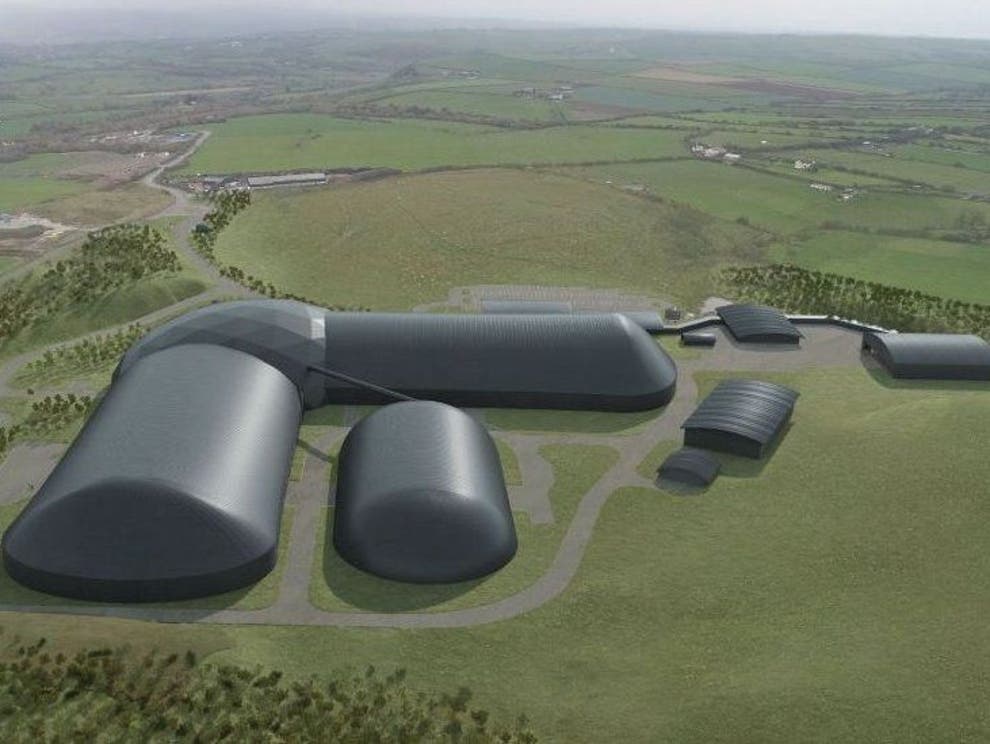Cumbria coal mine: Timeline of plans for Whitehaven application
Communities secretary ‘calls in’ controversial plans

Your support helps us to tell the story
From reproductive rights to climate change to Big Tech, The Independent is on the ground when the story is developing. Whether it's investigating the financials of Elon Musk's pro-Trump PAC or producing our latest documentary, 'The A Word', which shines a light on the American women fighting for reproductive rights, we know how important it is to parse out the facts from the messaging.
At such a critical moment in US history, we need reporters on the ground. Your donation allows us to keep sending journalists to speak to both sides of the story.
The Independent is trusted by Americans across the entire political spectrum. And unlike many other quality news outlets, we choose not to lock Americans out of our reporting and analysis with paywalls. We believe quality journalism should be available to everyone, paid for by those who can afford it.
Your support makes all the difference.The government is “calling in” a controversial plan for a new coal mine in Cumbria, the Ministry for Housing, Communities and Local Government (MHCLG) has said.
The communities secretary, Robert Jenrick, had decided the application should be referred to him rather than dealt with by the local planning authority, the department said.
Plans for the UK’s first deep coal mine in 30 years have been opposed by leading climate scientists, activists and politicians.
Here is a timeline of events so far:
2017
An application was submitted by West Cumbria Mining for a new deep coal mine near Whitehaven in Cumbria.
The £165m mine is expected to extract 2.78 million tonnes of coal a year up to 2049, with 85 per cent exported to Europe.
Proponents say it will bring in more than 500 well-paid jobs at the mine and 2,000 more in the supply chain.
March 2019
Cumbria City Council (CCC) approves the plans for the first time.
October 2019
Cumbria City Council approves the plans for the second time.
October 2020
Cumbria City Council approves the plans for the third time. The local authority had to look at the proposals three times due to changes made to the initial application.
December 2020
The Climate Change Committee releases a report saying the UK must move away from using coal in steel production within the next few decades if the country intends to meet its legal target of reaching net-zero emissions by 2050.
January 2021
Government defends decision to allow coal mine, with Joanna Averley, chief planning officer at the MHCLG, saying it had been given the go-ahead as it was deemed a “local” issue.
February 2021
Lord Deben, chairman of the CCC, says in a letter that the government’s inaction over the proposals gives a “negative impression of the UK’s climate priorities”.
He wrote: “The opening of a new deep coking coal mine in Cumbria will increase global emissions and have an appreciable impact on the UK’s legally binding carbon budgets.”
Leading climate scientist James Hansen writes to Boris Johnson urging him to intervene in plans for the mine.
More than 80 ecological and humanitarian groups also wrote to the government opposing the decision.
Cumbria County Council says it will reconsider the planning application in light of “new information” contained in the CCC’s December report.
The rethink came amid reports that Alok Sharma, the UK president of November’s United Nations Cop26 climate change summit in Glasgow, was “apoplectic” at his cabinet colleague Mr Jenrick’s failure to “call in” the plan.
In the same month, 40 Conservative MPs sign a letter to the local council’s Labour leader urging them to approve the project.
March 2021
Mr Jenrick, the communities secretary, decides to “call in” the controversial application.
In a letter to Cumbria County Council, the Ministry for Housing, Communities and Local Government said Mr Jenrick had decided the application should be referred to him rather than dealt with by the local planning authority.
"There are occasions when it is appropriate for Secretary of State to use his call-in powers and he considers that this application should be called in for his own determination," the letter said.
"The Secretary of State accordingly directs, under his powers in section 77 of the 1990 Act, that the application shall be referred to him instead of being dealt with by the local planning authority."
Join our commenting forum
Join thought-provoking conversations, follow other Independent readers and see their replies
Comments